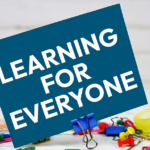Introduction
Here’s a scenario every learning leader knows: Your sales managers complete coaching training with flying colors, but six months later, their teams are still missing quotas. The feedback is inconsistent, conversations are surface-level, and your best reps are leaving for companies with “better development opportunities.”
Despite investing in sophisticated learning platforms, many organizations see disappointing results when it comes to actual behavior change and skill application. The missing element is often coaching. While traditional learning management systems excel at delivering training content and tracking completions, they typically fall short in providing the human guidance essential for leadership development.
The latest trend? Embedding coaching frameworks directly into Learning Management Systems. Platforms like Allego, Gong, and Lessonly promise to solve the coaching crisis through structured, scalable, data-driven approaches. But are they the answer, or just another shiny tool that misses the human element that makes coaching work?
The Current Coaching Crisis in Sales Organizations
Before diving into solutions, let’s acknowledge the problem. Today’s learning leaders face unprecedented challenges:
- Hybrid workforces make traditional shadowing and coaching nearly impossible
- Skills gaps are widening faster than traditional training can close them
- Manager overload means coaching gets deprioritized for “urgent” tasks
- Budget scrutiny demands measurable ROI from every learning investment
Research from the Miller Heiman Group shows dynamic coaching approaches facilitated through LMS platforms have yielded win rates as high as 55.2%, outperforming other coaching methods. Yet many organizations struggle to implement effective coaching at scale.
Organizations are increasingly turning to LMS solutions as secret weapons for driving sales revenue growth, especially during challenging economic times. But the fundamental question remains: does coaching belong inside your LMS, or should it remain a separate, human-centered practice?
Signs Your LMS Lacks Effective Coaching Integration
Looking closely at your current learning initiatives can reveal whether you’re missing the critical coaching component. Beyond completion rates and course evaluations, several telltale indicators suggest your integrated LMS isn’t delivering the full spectrum of learning support your sales teams need.
Low Sales Rep Engagement Despite Quality Content
Companies investing in sales training are 57% more effective than those who don’t, yet many organizations see learners “clicking through” modules just to check boxes rather than absorbing material. This creates a cycle where quality content goes unused because learners don’t see how it applies to their specific sales situations—precisely the gap coaching fills.
Watch for these warning signs:
- Course materials being viewed but not applied in daily sales activities
- Sales reps struggling to translate product knowledge into customer conversations
- Training completion rates that don’t correlate with sales performance improvements
Missing Feedback Loops in Sales Performance
For sales learning to stick, information must lead to action, closing what researchers call the “feedback loop.” Without this element, your LMS becomes merely a content repository rather than a development tool that drives sales results.
The most powerful coaching moments happen in real-time: right after a lost deal, immediately following a successful presentation, or when a rep asks for help. Unfortunately, in many organizations, real-time coaching rarely happens. Sales reps may complete training, deliver a pitch, or lose a deal without ever receiving timely feedback. This timing disconnect means sales reps have often moved on mentally before receiving guidance on improvement.
Sales Managers Disconnected from Learning Outcomes
Perhaps the most significant indicator of a coaching gap is minimal sales manager involvement in your learning ecosystem. Effective sales coaches work with reps to diagnose, develop, and reinforce behaviors that improve performance and sales results. Yet many LMS implementations fail to connect manager coaching activities with formal learning programs.
When sales managers remain disconnected from learning initiatives, several problems emerge:
- Sales training becomes divorced from pipeline and revenue objectives
- Newly acquired skills rarely transfer to actual selling situations
- Managers miss opportunities to reinforce learning through real-world coaching moments
The Case FOR LMS Coaching Models in Sales
1. Consistency at Scale Without Geographic Limits
Imagine this: Your Seattle sales manager uses the same coaching framework as your Atlanta manager, who uses the same approach as your remote team lead in Austin. When every manager accesses structured prompts, feedback templates, and coaching workflows inside the LMS, geographical disparity disappears.
Building a powerful sales coaching program requires systematic approaches that can be replicated across teams. Companies implementing standardized LMS coaching modules often see reductions in coaching quality variance across regions.
This consistency matters because bias in coaching feedback can be costly. When managers rely on gut instinct alone, they often coach to their own strengths rather than their reps’ actual development needs.
2. Data That Actually Drives Sales Decisions
Modern LMS platforms don’t just track that coaching happened—they track how it happened. Consider these metrics that learning leaders can finally access:
- Coaching frequency per rep (beyond just “did it happen?”)
- Quality patterns (which types of feedback drive behavior change in sales?)
- Skill progression tracking (are coaching conversations moving sales performance?)
- Manager coaching confidence scores (who needs coaching on sales coaching?)
Organizations using LMS coaching data have discovered patterns in high-performing sales teams that inform better coaching strategies across their entire sales organization. This data-driven approach helps identify which types of feedback drive behavior change and which sales skills need more development focus. Understanding and tracking the right sales coaching metrics becomes crucial for measuring program effectiveness.
3. Integration That Increases Sales Adoption
When coaching lives inside the same platform as sales training content, practice scenarios, and performance data, adoption rates soar. Salesforce’s comprehensive coaching platform demonstrates how integrated environments streamline the coaching process.
Instead of juggling separate tools for content delivery, practice sessions, coaching notes, and performance tracking, sales managers have one dashboard. This reduces friction and increases the likelihood that coaching actually happens consistently. Watch how integrated coaching platforms work in practice.
4. Always-Available Practice Environment for Sales Skills
LMS-based coaching creates a “safe space” for both managers and reps to practice difficult sales conversations. Role-play scenarios, video submissions, and peer feedback loops allow for low-stakes skill building that builds confidence for real-world application.
Effective onboarding can lower sales ramp time by as much as two months. Custom learning solutions specifically designed for sales enablement can accelerate this process even further.
The Case AGAINST LMS Coaching Models in Sales
1. The Empathy Gap in Sales Relationships
Here’s what technology struggles with: reading body language during a difficult conversation with a prospect, picking up on emotional undercurrents when a rep is struggling with confidence, and adapting to the unique personality of each sales professional. When a top performer is struggling after losing a major deal, they need empathy and personalized support—not a dropdown menu of preset responses.
The trust factor: Sales coaching effectiveness hinges on psychological safety. When feedback feels templated or automated, it can actually damage the manager-rep relationship rather than strengthen it. The person providing the feedback is asked to listen and engage with curiosity, not just share “constructive criticism” with observed actions and impact. While AI can provide objective feedback, human oversight remains critical because fairness isn’t just about algorithms—it’s about understanding context.
2. Timing Is Everything (And Systems Are Slow)
Organizations that provide timely feedback see better behavior change than those with longer feedback delays. The most powerful coaching moments happen in real-time: right after a lost deal, immediately following a successful presentation, or in the moment when a rep asks for help. LMS platforms, no matter how sophisticated, rely on asynchronous feedback loops that can miss these critical windows.
Good sales coaching can unlock serious revenue potential. In fact, effective sales coaching and enablement can increase sales performance by 8%, according to a study by Gartner. But this effectiveness depends heavily on timing and context that automated systems struggle to provide.
3. The Skill Atrophy Risk for Sales Managers
When sales managers become dependent on system prompts and structured templates, their natural coaching instincts can atrophy. The risk? Creating coaching “robots” who can follow a framework but can’t adapt when the sales situation demands creativity or deep empathy.
Long-term concern: Organizations that over-rely on systematized coaching may inadvertently weaken the very leadership capabilities they’re trying to develop in their sales management team.
4. One-Size-Fits-None Syndrome in Sales
Every sales rep is different. Some need direct feedback on their presentation skills, others respond to collaborative problem-solving around objection handling, and still others require emotional support before they can hear constructive criticism about their closing techniques. LMS coaching models, by their nature, tend toward standardization—which can miss these crucial individual differences in sales team development.
The Winning Formula: Strategic Hybrid Sales Coaching
The most successful sales organizations don’t choose between technology and humanity—they strategically blend both. Here’s how to build a hybrid coaching approach that leverages the best of both worlds for sales teams. The smartest learning and development leaders are pairing AI tools with human expertise for maximum impact.
Phase 1: Use LMS for Sales Foundation Building
What belongs in the system:
- Sales coaching framework training and reinforcement
- Product knowledge practice scenarios and skill drills
- Sales performance tracking and pipeline correlation
- Manager confidence building through repetitive sales coaching practice
Organizations implementing structured LMS coaching modules typically see manager readiness improve significantly as sales leaders become more comfortable and confident in their coaching approach through practice and repetition. Maximizing LMS efficiency requires following best practices that ensure your technology foundation is solid.
Phase 2: Apply Human Coaching for Complex Sales Development
What belongs in human interaction:
- Complex sales performance issues requiring empathy
- Career development conversations for sales professionals
- Crisis management after major deal losses and confidence building
- Relationship repair and trust building within sales teams
The handoff: Use LMS insights as conversation starters, not conversation enders. Data should inform human sales coaching, not replace it. Embedding sales coaching techniques and tools within CRM and enablement platforms. Integrating coaching into daily workflows improves adoption and leverages data-driven sales coaching insights for targeted guidance. Learn more about effective coaching strategies in this comprehensive video series.
Phase 3: Create Continuous Sales Feedback Loops
The most effective hybrid models create ongoing dialogue between system insights and human application. Sales managers learn to interpret data, then apply those insights through personalized conversations that drive revenue results. Understanding how to build effective feedback mechanisms is essential for creating these continuous improvement cycles.
Conclusion: The Future of Sales Coaching Is Both/And, Not Either/Or
The question isn’t whether coaching should live inside your LMS—it’s how to architect a coaching ecosystem that harnesses technology’s strengths while preserving the irreplaceable human elements that drive real behavior change.
Winning organizations have moved beyond the false choice between high-tech and high-touch coaching. Instead, they’ve built integrated systems where technology handles the scalable and measurable elements (consistent framework delivery, performance tracking, skill assessment), while humans handle the complex and contextual aspects (emotional intelligence, relationship building, crisis management).
When LMS data informs human coaching conversations, and human insights improve system recommendations, the result is coaching that’s both consistent and personalized, both scalable and deeply human.
For learning leaders, this hybrid approach offers the best path forward: measurable coaching programs that actually change behavior, develop sales talent, and drive revenue results. The future belongs to organizations brave enough to embrace both the efficiency of technology and the irreplaceable power of human connection.
Download Your Free Copy of Trends in Learning & Development: Insights from Learning Leaders
How TrainingPros Can Help
Building effective hybrid coaching programs requires more than just technology—it requires strategic thinking, careful implementation, and leaders who understand how to balance automation with authentic human development. If your organization is exploring how to integrate coaching frameworks into your LMS, scale manager development, or create custom sales enablement solutions, TrainingPros can connect you with experienced sales training consultants, instructional designers, and learning strategists who know how to design coaching programs that actually drive revenue results.
At TrainingPros, we match organizations with experienced consultants who lead with strategy, then help you identify the tools and methods that actually support your business goals. Whether you’re rethinking onboarding, scaling leadership development and coaching, or trying to make sense of your tech stack, we can help you shift from reactive to results-driven.
We’ve been named a Top 20 Staffing Company by Training Industry, a Smartchoice® Preferred Provider by Brandon Hall Group, and a Champion of Learning by ATD–honors that reflect our commitment to providing top-tier, problem-solving talent.
When you have more projects than people™, TrainingPros can provide the right L&D consultant to start your project with confidence.
- 1share
- LinkedIn1
- Twitter0
- Facebook0
- Love This0











